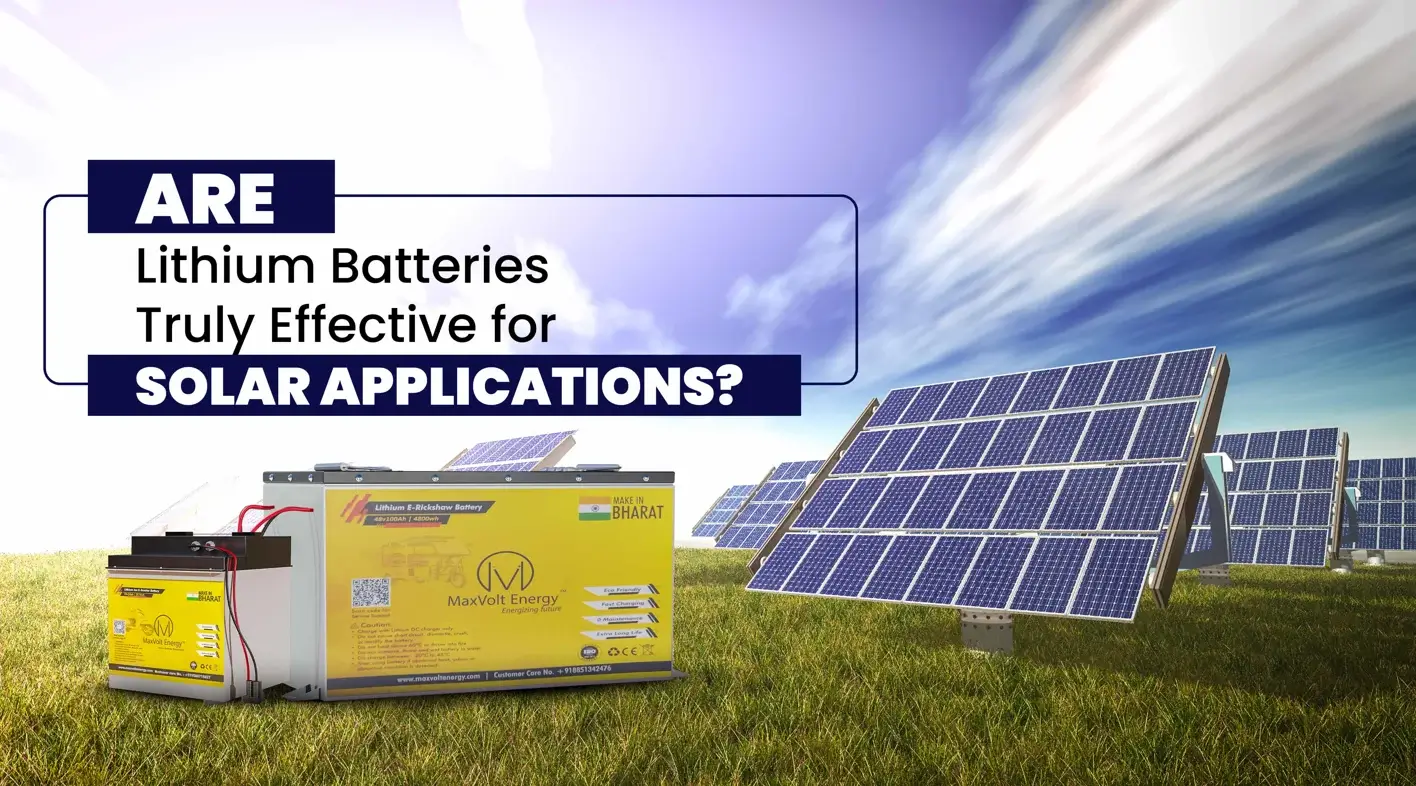
Are Lithium Batteries Truly Effective for Solar Applications
It a wise decision to invest in solar energy, but it's even smarter to integrate solar power with lithium battery storage. Despite lithium batteries' higher cost, their improved performance and longer lifespan make them an excellent choice for off-grid or grid-tied applications.
When choosing a battery to match your solar system, it is vital to understand the advantages of lithium batteries over lead-acid batteries.
When it comes to solar systems, lithium-ion solar batteries are the current trendy battery of choice. Solar enthusiasts adore these batteries and reject their high price, but are they worth it? Are these solar panel batteries honestly the most effective option? Let's see what happens!
Are lithium solar batteries the best for solar panels?
Lithium solar batteries are the best at storing energy for solar systems. They are more efficient, charge faster, do not require maintenance, and last significantly longer.
The efficiency stems from the batteries' low internal resistance, which allows them to charge with minimal loss. The energy in equals the power out since they can discharge with little loss. When we think about advantages, lithium solar batteries, despite their higher initial cost, are a more cost-effective solution than other battery types in the long term.
Some significant benefits are listed below:
Lithium batteries are remarkably efficient: Lead acid batteries have an efficiency of 70% to 80%. This low efficiency persists throughout the system's life. In a world where inverters and charge controllers achieve efficiencies in the high 90s, an energy storage system that is also highly efficient is highly desirable. Since lithium batteries are often more efficient than lead acid batteries, they outperform them here.
Another way lithium batteries beat lead acid batteries is by capturing all the energy from your renewable energy system. Because lead acid batteries have poor charge acceptance, your inverters and charge controllers must often decrease the amount of energy they can harvest to not exceed the low-charge currents that lead acid batteries can accept. Lithium does not have this limitation because it may be charged at the 1C rate.
Lithium batteries have a long lifespan: A battery's cycle life, defined as a discharge followed by a recharge, is a critical quantity in batteries since it influences how long your batteries will survive. It is another area where lithium batteries beat lead-acid batteries since they often last 20 times longer. If you discharge your lead acid battery to 100% capacity, it will last 400–600 cycles. Under the same conditions, a lithium battery will provide 8,000 cycles.
One of the reasons that lead acid batteries do not last as long as predicted is their susceptibility to being undercharged. The life of a lead acid battery will be cut by 80% if it is continuously undercharged. It is significant since renewable energy sources are intermittent, resulting in the batteries operating at partial states of charge. Lithium batteries don't suffer any harm when they are cycled at partial levels of charge.
Lithium is affordable: To control how much you drain your lead acid batteries, you often have to oversize your battery bank. Most lead-acid battery manufacturers do not suggest exceeding a 50% drain on their batteries. It means that your battery bank must be twice as large as it needs to be. Lithium batteries allow you to use their entire energy capacity without the risk of damage. At low temperatures, the capacity of batteries decreases. So, the battery bank must be oversized to match the solar system's energy demand at low temperatures. Low temperatures have a severe impact on lead-acid batteries but not on lithium batteries.
Lithium requires no upkeep: Lead-acid batteries must be checked and maintained; if water levels fall below a certain level, you must refill them or risk considerable damage and hazard. Lithium-ion batteries need no maintenance after installation. While you should check any battery you buy, including lithium, upkeep is reduced with a lithium-based system. Lithium batteries are also compact. Pick lithium if you're building a solar application and are running out of battery space.
In every circumstance, lithium is a more compelling energy storage alternative than lead acid. If you are unsure about your solar power storage requirements, please contact us so that we may assist you in determining the best fit for your application.



